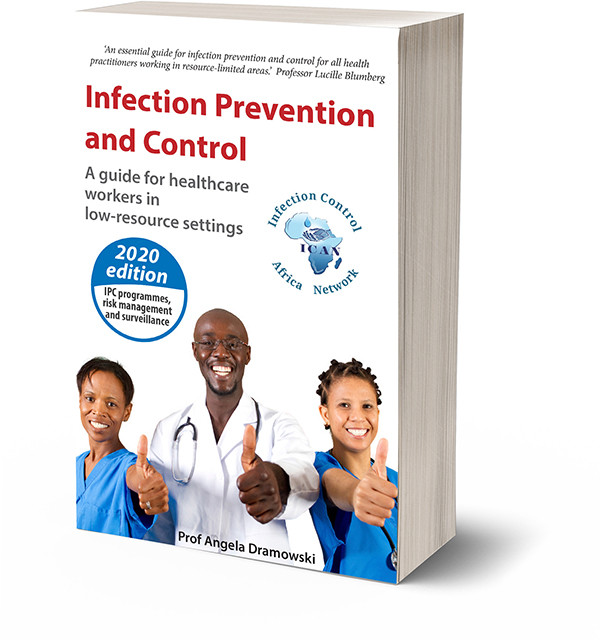Quiz 2: HIV in pregnancy
Choose the one, most correct answer to each question or statement.
- What percentage of pregnant women in South Africa are infected with HIV?
- Less than 5%
- Between 5% and 10%
- About 30%
- More than 50%
- Which test can be used to screen pregnant women for HIV?
- CD4 count
- Viral load
- VDRL test
- Rapid test
- What is the risk of transmission of HIV from a mother to her fetus during pregnancy, labour and vaginal delivery if they do not have ARV prophylaxis?
- Less than 10%
- Between 10 and 30%
- Between 30 and 50%
- More than 50%
- The following women are at an increased risk of transmitting HIV to their fetus:
- Women who become infected with HIV during the pregnancy
- Women who are infected with HIV a few years before they fall pregnant
- Women who are pregnant for the first time
- Women who have had previous pregnancies
- Which women at an antenatal clinic should be counselled about the benefits of HIV screening?
- Only women who request an HIV test
- All women
- Only unmarried women
- Only women with syphilis
- How should women be told the result of the screening test?
- It is best to inform them by post as this is the most private way to give them the results.
- They should be told in small groups so that they can give each other emotional support.
- They should be individually counselled and told the results.
- Only HIV-positive women should be told their test result.
- What precautions should a pregnant woman take to avoid becoming infected with HIV?
- Use a diaphragm.
- Douche with water after sexual intercourse.
- Use a condom.
- There is no need to take precautions once she is pregnant.
- What effect may asymptomatic HIV infection have on pregnancy?
- HIV has no effect on pregnancy.
- Pneumonia is more common.
- Placenta praevia is more common.
- Gestational proteinuric hypertension (GPH or PET) is more common.
- Which one of the following procedures may increase the risk of HIV transmission during pregnancy?
- Amniocentesis
- Vaginal examination
- Abdominal palpation
- Taking a cervical cytology (PAP) smear
- Which ARV drug is used to reduce the risk of HIV transmission to the fetus?
- Co-trimoxazole
- INH
- TLD
- Tetracycline
- How may ARV drugs reduce the risk of vertical transmission?
- By inducing labour early
- By preventing fetal distress
- By reducing the viral load
- By treating syphilis
- Providing lifelong ARV treatment to all pregnant women who are HIV positive is called:?
- WHO option A
- WHO option B
- WHO option B+
- WHO option C
- There is a concern about a possible association with neural tube defects and which of the following ARV drugs, when used in the first trimester?
- AZT
- TDF
- FTC
- DTG
- Which statement regarding the use of multivitamins by pregnant women living with HIV is true?
- They will not reduce the risk of vertical transmission of HIV.
- They will reduce the risk of vertical transmission by 50%.
- They will block the effects of most ARV drugs.
- They will lower the CD4 count.
- Is AIDS an important cause of maternal death in South Africa?
- It is not a cause of maternal death.
- It is an uncommon cause of maternal death.
- In the future it may become an important cause of maternal death.
- It is the most common cause of maternal death.
- May pregnancy cause a more rapid progression of HIV infection from stage 3 to 4?
- Yes
- Only in older women
- Only with a twin pregnancy
- No
- Which opportunistic infection is most common in pregnant women with stage 3 HIV infection?
- Oesophageal candidiasis
- Pulmonary tuberculosis
- Pneumocystis pneumonia
- Cryptococcal meningitis
- Prophylactic co-trimoxazole is given to pregnant women with AIDS to prevent:
- Oesophageal candidiasis
- Tuberculosis
- Herpes zoster
- Pneumocystis pneumonia
- What is an important side effect of TDF?
- Anaemia
- Severe skin rash
- Renal failure
- Bad dreams
- Which drugs are used to treat tuberculosis during pregnancy in women who are HIV positive?
- Anti-TB drugs should only be started after the infant is born
- Rifampicin, INH, pyrazinamide and ethambutol ( Rifafour)
- Rifampicin, INH, pyrazinamide only
- Rifampicin alone

